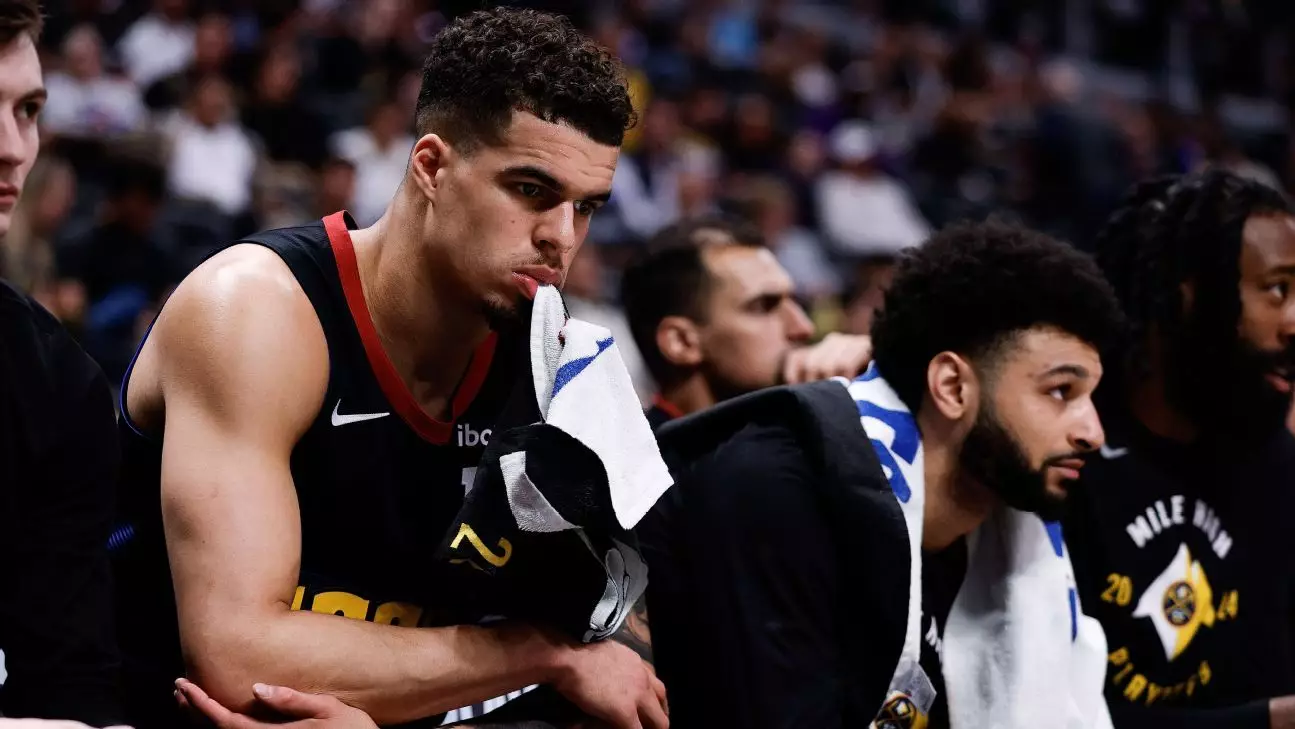In recent years, the landscape of professional sports has been transformed by the rise of widespread sports betting. While legal and regulated betting might seem harmless or even entertaining at first glance, it increasingly threatens the core values that make sports compelling: authenticity, skill, and the pure joy of competition. When athletes and fans become entangled in betting pressures, the essence of sporting integrity is compromised. Instead of focusing on winning through dedication and talent, the narrative shifts toward manipulated outcomes and financially motivated decisions that distort the game’s true spirit. This shift not only diminishes fans’ enjoyment but also raises critical questions about the integrity of the sport itself.
The Personal Cost and Ethical Quandaries
Porter Jr.’s candid remarks highlight a growing concern: athletes are often placed in morally perilous positions where their decisions are influenced—or coerced—by external financial threats. His brother Jontay’s involvement in a gambling scheme that led to his NBA ban exemplifies how the lure of money can corrupt even the most disciplined players. These incidents reveal a dangerous cycle—athletes, especially those from underprivileged backgrounds, may succumb to the temptation of quick cash, risking their careers, reputation, and mental health in the process. Michael Porter Jr. voiced empathy for players caught in this web, emphasizing how societal circumstances can make resisting gambling schemes incredibly difficult for vulnerable individuals.
The Impending Threat of Escalating Risks
Porter’s assertion that the problem is only going to worsen is a stark warning. With the expansion of legal sports betting platforms across the country, the temptation not only grows among players but also among a wider pool of aggressive gamblers who don’t adhere to regulation or ethics. The rise of prop bets, where outcomes can be influenced or manipulated based on insider or insider-like knowledge, creates an environment rife with potential corruption. When athletes face threats—like the death threats Porter mentioned—it underscores the darker side of this industry: violence, intimidation, and a clash between the sporting world and criminal elements. If swift action isn’t taken to address these issues, the integrity of sports could become a casualty of greed and exploitation.
Rethinking Regulation and Responsibility
In his critique, Porter advocates for restricting sports betting exclusively to physical venues, such as Las Vegas, and against the proliferation of online, accessible platforms. This stance underscores the importance of tighter regulation—failing which, the gambling industry could grow even more invasive, eroding public trust and jeopardizing athlete safety. Furthermore, there must be a collective push to educate players about the moral and psychological hazards of gambling. Sports leagues, regulatory bodies, and society at large must recognize that the allure of easy money often comes with serious consequences—not just for individual athletes but for the sport’s reputation.
While sports betting may seem like a harmless addition to the sporting experience, its darker aspects threaten the very fabric of athletic competition. It’s imperative to acknowledge these risks and implement controls that preserve the integrity of the game for generations to come.


Leave a Reply